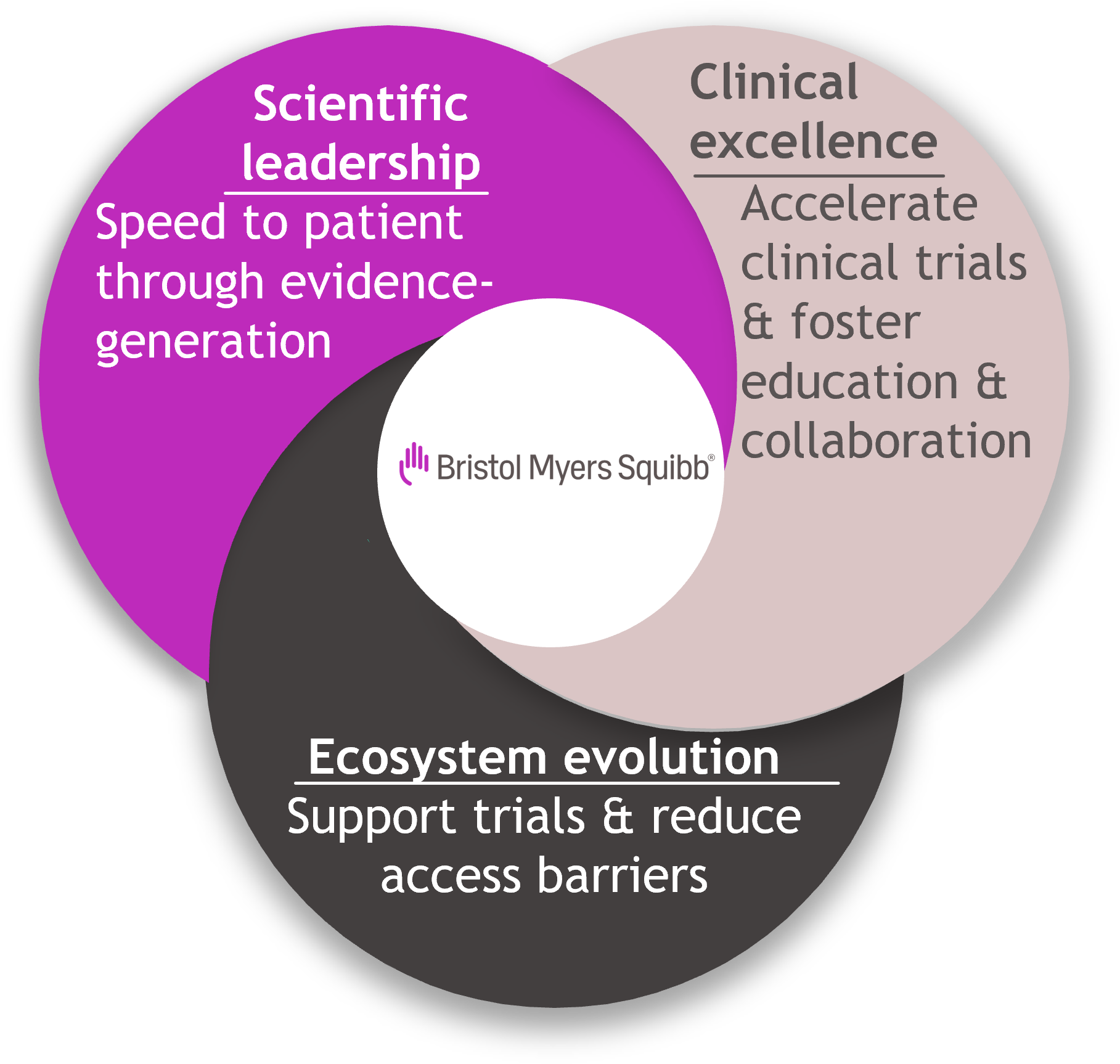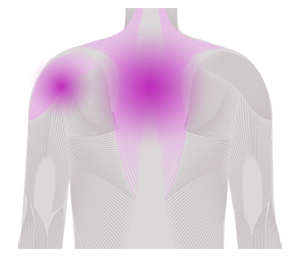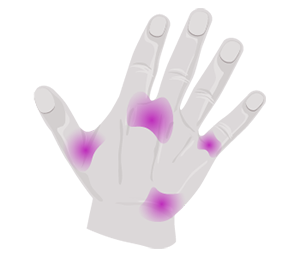Taking ACTioN
Advancing cell therapy for autoimmune diseases
CAR T cell therapy is a proven, transformational treatment approved to treat many forms of blood cancer. Initial, exciting research demonstrates the potential to bring the science of cell therapy to people living with chronic, B cell-mediated autoimmune diseases, both rheumatologic and neuroinflammatory.
As the only company with two approved CAR T cell therapies for two distinct targets in hematology, a pioneer in harnessing the immune system to fight serious disease and a leader in treating autoimmune diseases, Bristol Myers Squibb is sitting at a critical nexus to advance this science.
Alongside a group of scientific experts, clinicians and patient advocates, BMS is taking ACTioN to expand the science of CAR T into autoimmune diseases.
What is ACTioN?
Cross-disciplinary collaboration – and collaboration with patients – plays a crucial role in advancing the science that could soon make CAR T cell therapy an option for treating autoimmune diseases.
ACTioN stands for the Autoimmunity Cell Therapy Network, and the name helps underscore our drive and passion to move this work forward with speed and focus. A first-of-its-kind consortium, BMS created ACTioN to accelerate interdisciplinary collaboration and medical advancement in the development of cell therapies to treat autoimmune diseases, by bringing together leading global scientific experts, clinicians and patient advocates.
We are working to unlock the full potential of cell therapy and deliver potentially transformative treatments to patients living with certain severe autoimmune diseases who have been living with their disease for years, have stopped responding to therapy, and have a poor quality of life and prognosis.
In ACTioN: Hear from our experts
Learn more about CAR T cell therapy:
Accelerating medical advancement, together: Our ACTioN pillars
Scientific leadership aims to expand scientific advancements in cell therapy in autoimmune diseases faster through evidence generation. This important work is driven by leading scientists and clinicians working in cell therapy and/or autoimmunity.
Clinical excellence focuses on facilitating knowledge exchange across the multidisciplinary care teams who collaborate across various specialties, such as rheumatology, nephrology, neurology and hematology, to treat patients with autoimmune diseases.
Ecosystem evolution focuses on developing a strong foundation to enable adoption of cell therapy in autoimmune diseases. Importantly, it ensures we hear directly from patients about their daily challenges, integrate their collective voice into the development of these therapies, and develop strategies to reduce barriers to access clinical trials.

By bringing these stakeholders together, encouraging open and productive dialogue and developing strategies to address challenges in near-real time, we are driving ACTioN and progress to one day unlock the full potential of cell therapy for patients living with autoimmune diseases.
Urgent need for innovative therapies
People living with autoimmune diseases, including rheumatologic and neuroinflammatory, face a range of progressive, often debilitating symptoms that profoundly impact quality of life and can lead to life-threatening organ damage or death.
Together with ACTioN members, BMS is investigating cell therapy for the treatment of autoimmune diseases such as systemic lupus erythematosus, multiple sclerosis, idiopathic inflammatory myopathies, systemic sclerosis and myasthenia gravis.
Across these diseases, patients are often diagnosed at a young age and face a lifetime of symptoms that require frequent or chronic treatment. While currently available treatment approaches offer many patients relief from their day-to-day symptoms, there is still an opportunity to better understand and address the underlying causes of these diseases, which could help enable patients to achieve durable, drug-free remissions through a one-time treatment*.
*The treatment process includes collection of T cells from the patient’s blood, CAR T cell manufacturing, administration and side-effect monitoring
ACTioN leadership
Rosanna Ricafort, MD
Vice President, Senior Global Program Lead for Hematology and Cell Therapy
Co-Chair
Jessica Cairns, PharmD
Vice President, Head of Medical Affairs, Cell Therapy Organization
Co-Chair
Ongoing commitment
BMS, in collaboration with members of ACTioN and the broader community, is working along several fronts to advance the science of cell therapy. Learn more about our ongoing clinical trials and other assets in our pipeline.
The time for ACTioN is now.
IMM-US-2500106 5/25










